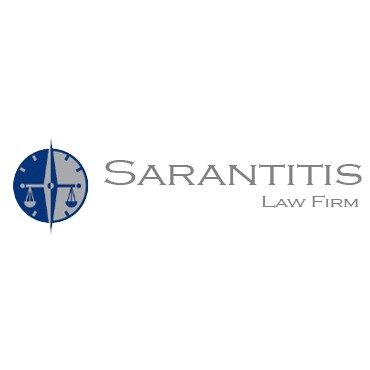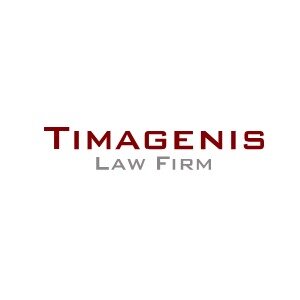Best Employment & Labor Lawyers in Piraeus
Share your needs with us, get contacted by law firms.
Free. Takes 2 min.
List of the best lawyers in Piraeus, Greece
About Employment & Labor Law in Piraeus, Greece
Piraeus, a significant port city in Greece, is an industrial hub with a diverse range of businesses, from shipping and logistics to manufacturing and services. Employment & Labor law in Piraeus is governed by Greek national laws, which are also harmonized with European Union regulations. These laws aim to protect workers' rights, regulate employment relationships, and ensure fair treatment in the workplace. Key areas include contract formation, working hours, wages, health and safety standards, discrimination, and collective labor rights.
Why You May Need a Lawyer
Legal assistance may be necessary for various reasons in the field of Employment & Labor. Some common situations include wrongful termination, workplace discrimination or harassment, disputes over wages or working conditions, issues related to employment contracts, and negotiations or disputes involving trade unions. Employers may also need legal guidance to ensure compliance with labor laws, develop employment policies, or handle disputes with employees.
Local Laws Overview
Piraeus, like the rest of Greece, follows the National Labor Code, which establishes the framework for employment rights and regulations. Key aspects include:
- Employment Contracts: Must clearly outline job roles, responsibilities, salary, and working hours.
- Working Time Regulations: Standard working hours are usually 40 hours per week, with overtime entitlements.
- Minimum Wage: Greece has established a national minimum wage, which must be adhered to by all employers.
- Health and Safety: Employers are required to maintain safe working conditions and adhere to health regulations.
- Anti-Discrimination Laws: Prohibit discrimination based on gender, race, religion, or any other characteristic.
- Collective Bargaining: Encouraged and protected, allowing trade unions to negotiate employment conditions on behalf of workers.
Frequently Asked Questions
What are my rights if I am unfairly dismissed from my job?
If you believe you were dismissed without valid reason, you might be entitled to compensation or reinstatement. It's advisable to consult with a lawyer to evaluate your case.
How can I ensure that my employment contract is fair?
Before signing, review the contract carefully. Verify it includes clear terms about pay, responsibilities, hours, and notice periods. Consulting with a lawyer can help ensure the contract is legally sound and fair.
What is the role of trade unions in Piraeus?
Trade unions in Piraeus represent workers in negotiations over wages and working conditions and advocate for employee rights. They play a crucial role in collective bargaining and can provide support in disputes with employers.
Can I sue my employer for workplace discrimination?
Yes, you can take legal action if you face discrimination at work. Employment laws in Greece prohibit discrimination, and legal recourse is available to protect your rights.
What are the typical working hours in Piraeus?
The standard working week is 40 hours, typically spread over five days. Overtime must be compensated, and it is regulated by law to protect employees from excessive working hours.
Are there specific laws about maternity and parental leave?
Yes, Greek law provides maternity and parental leave entitlements. Pregnant employees, new mothers, and parents are given specific protections regarding leave and job security.
What is considered a safe working environment under Greek law?
Employers must adhere to established health and safety regulations to ensure safe working conditions. This includes regular risk assessments and the provision of adequate safety equipment.
How is my data protected at work?
Employers in Piraeus are required to comply with data protection laws, including the General Data Protection Regulation (GDPR), ensuring that your personal information is handled responsibly.
Can an employer change my job role or reduce my salary unilaterally?
No, significant changes to job roles or salary should be agreed upon by both the employer and employee. Unilateral changes could be contested legally.
What happens if my employer goes bankrupt?
In the case of employer insolvency, employees are usually protected by national guarantee funds, ensuring they receive unpaid wages and redundancy compensation.
Additional Resources
For further assistance, consider reaching out to the following resources:
- Piraeus Labor Center: Offers information and support for employees regarding labor rights and workplace issues.
- Greek Ombudsman: An independent authority that addresses concerns regarding workplace discrimination and rights violations.
- Ministry of Labor and Social Affairs: Provides official guidelines and updates on employment laws in Greece.
Next Steps
If you need legal assistance in Employment & Labor matters, consider the following steps:
- Identify Your Needs: Determine the specific area in which you need assistance, whether it's a dispute, contract review, or policy compliance.
- Consult with a Lawyer: Seek professional advice from a lawyer experienced in Employment & Labor law. They can offer guidance tailored to your specific situation.
- Gather Documentation: Compile all relevant documents, including contracts, correspondence, and any evidence related to your case.
- Attend Follow-up Meetings: Be prepared for consultations and meetings with your legal advisor to discuss and proceed with your case.
By understanding your rights and seeking appropriate legal counsel, you can effectively address and resolve Employment & Labor issues in Piraeus, Greece.
Lawzana helps you find the best lawyers and law firms in Piraeus through a curated and pre-screened list of qualified legal professionals. Our platform offers rankings and detailed profiles of attorneys and law firms, allowing you to compare based on practice areas, including Employment & Labor, experience, and client feedback.
Each profile includes a description of the firm's areas of practice, client reviews, team members and partners, year of establishment, spoken languages, office locations, contact information, social media presence, and any published articles or resources. Most firms on our platform speak English and are experienced in both local and international legal matters.
Get a quote from top-rated law firms in Piraeus, Greece — quickly, securely, and without unnecessary hassle.
Disclaimer:
The information provided on this page is for general informational purposes only and does not constitute legal advice. While we strive to ensure the accuracy and relevance of the content, legal information may change over time, and interpretations of the law can vary. You should always consult with a qualified legal professional for advice specific to your situation.
We disclaim all liability for actions taken or not taken based on the content of this page. If you believe any information is incorrect or outdated, please contact us, and we will review and update it where appropriate.
Browse employment & labor law firms by service in Piraeus, Greece
Piraeus, Greece Attorneys in related practice areas.















